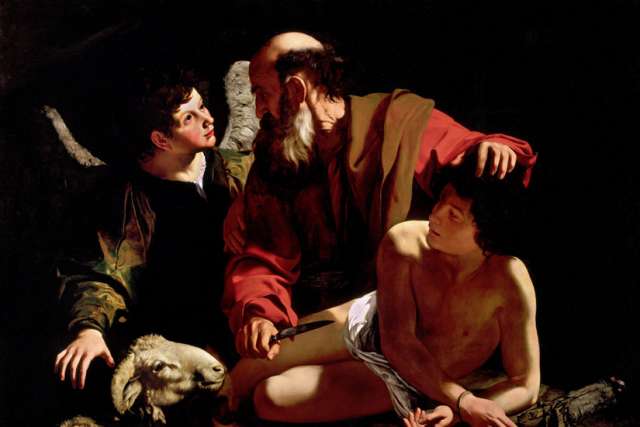Would you give up the most precious thing in your life at God’s request? Our “father in faith” Abraham showed himself to be willing, demonstrating that he held back absolutely nothing from God. He and Sarah had waited for the arrival of the promised son and heir. The years ticked by; the biological clock had certainly run out — but that was the moment that God intervened and Isaac was born. He was more than a beloved son and symbol of their immortality through descendants — he was the sign and heir of God’s promise. Now God wanted it all back!
The very spare and terse text gives us no hint of Abraham’s feelings (or Isaac’s!) as he trudged up that mountain. Was he afraid or grief-stricken? That would have been a normal human reaction. Rabbinic midrash amplified and retold this story many times, and in them we find a full range of human reactions in Isaac and Abraham.
The story should make us uneasy — what sort of God would ask such a thing of a parent? Would you as a parent heed such a “command”? Unfortunately, there are many tragic instances of those who were convinced they were carrying out heavenly orders. The story only makes sense in the second millennium B.C., when human sacrifice was not uncommon. Scholars point out that even the Israelites took part in this practice in their very early history. The ram caught in the thicket and offered up in place of Isaac represents a turning point in religious consciousness — the notion of substitutionary sacrifice. At various times the Israelites lapsed back into old ways, as is well-attested by the fulminations of the prophets. For our purposes, two things are helpful. First of all, Abraham already had a long, rich and personal relationship with God and knew that God could be trusted. Secondly, the principle at stake is still valid: all is gift, all belongs to God. By offering back to God the long-awaited gift and not clinging possessively, Abraham demonstrated both gratitude and trust. As a spiritual practice, we might offer to God our most prized possession (no living things, especially humans!) with gratitude. God is not going to snatch it away from us, but we will grow in a sense of inner freedom and trust.
Sometimes some very simple words of Scripture that are passed over superficially need to be reappropriated and taken to heart. The idea of God being for us has been misused in the past in order to bolster nationalism or religious identity. The statement should be taken personally — God cared so much for each of us that He gave His only Son for our sake. God’s love was and still is boundless. With all of that in our favour, why do we give in to fear and doubt, allowing ourselves to be overwhelmed by the things that life sends our way?
Once again an offering was made to God on a mountaintop. Peter, James and John were frightened out of their wits by the brilliant light around Jesus and His conversation with Elijah and Moses. What were they talking about? Mark does not say, although Jesus’ “gag order” given to the apostles until after He had risen from the dead gives us a clue. Their conversation concerned His journey to Jerusalem where He would be crucified and raised from the dead. At the baptism of Jesus He was addressed as the Beloved Son — recalling Isaac — and it is repeated here, this time with a command that His followers listen to Him. These parallels established a connection in the minds of New Testament writers (Gal 4:22-31; Rom 8:32; Heb 11:17-19) and some of the Church Fathers between Isaac and the sacrifice of Jesus on the cross. Art, devotion and some theology portrayed Isaac as prefiguring Christ. After their descent from the mountain, Jesus began to speak repeatedly of His passion and death and to insist that His followers had to be willing to follow the same path.
Abraham held back nothing in his desire to do God’s will. God held back nothing in His love for humanity. Jesus held back nothing both in His love for humanity and His desire to do the Father’s will. How much do we give and how much do we hold back?

